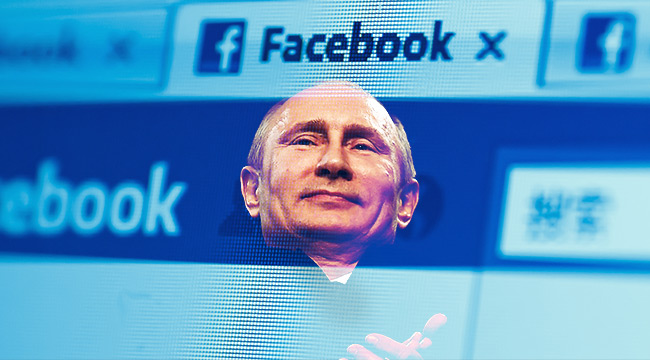
One of the big questions out of the 2016 election was just how much influence Russia had on the election. While fake news has become a rallying cry and a problem Facebook and Google are desperately trying to solve, TIME has delved into Russia’s propaganda operations, and the article is full of tidbits and embarrassing revelations.
The biggest problem, at least from Facebook’s perspective, is that Russia has been buying ads to push its propaganda, something we already knew from investigations into Breitbart and Infowars. Here’s the lowdown from TIME:
The intelligence officials have found that Moscow’s agents bought ads on Facebook to target specific populations with propaganda. “They buy the ads, where it says sponsored by — they do that just as much as anybody else does,” says the senior intelligence official. (A Facebook official says the company has no evidence of that occurring.)
Some have noted that if the Trump campaign coordinated with these ad efforts, even unknowingly, that might potentially be a crime. Facebook wouldn’t know, however. As we’ve seen repeatedly in the last few months, there are plenty of businessmen with Russian connections that can easily buy ads without any clear connection. Finding these intermediaries, known in the intelligence community as cut-outs, might be impossible for Facebook and Google unless they know exactly what they’re looking for. In other cases, the attempts at influence are, well, a bit more crude:
In one case last year, senior intelligence officials tell TIME, a Russian soldier based in Ukraine successfully infiltrated a U.S. social media group by pretending to be a 42-year-old American housewife and weighing in on political debates with specially tailored messages. In another case, officials say, Russia created a fake Facebook account to spread stories on political issues like refugee resettlement to targeted reporters they believed were susceptible to influence.
It is worth noting that it’s possible, even easy, to overstate how effective these campaigns are, and one of the big, undiscussed, flaws here is that we know the Russian government was behind it. In the end, Trump’s victory was a squeaker, and he soundly lost the popular vote, something that still nettles him. Really, propaganda campaigns only work if we don’t think critically and unblinkingly accept what they say. A little common sense, and fact-checking, goes a long way.
(via TIME)
